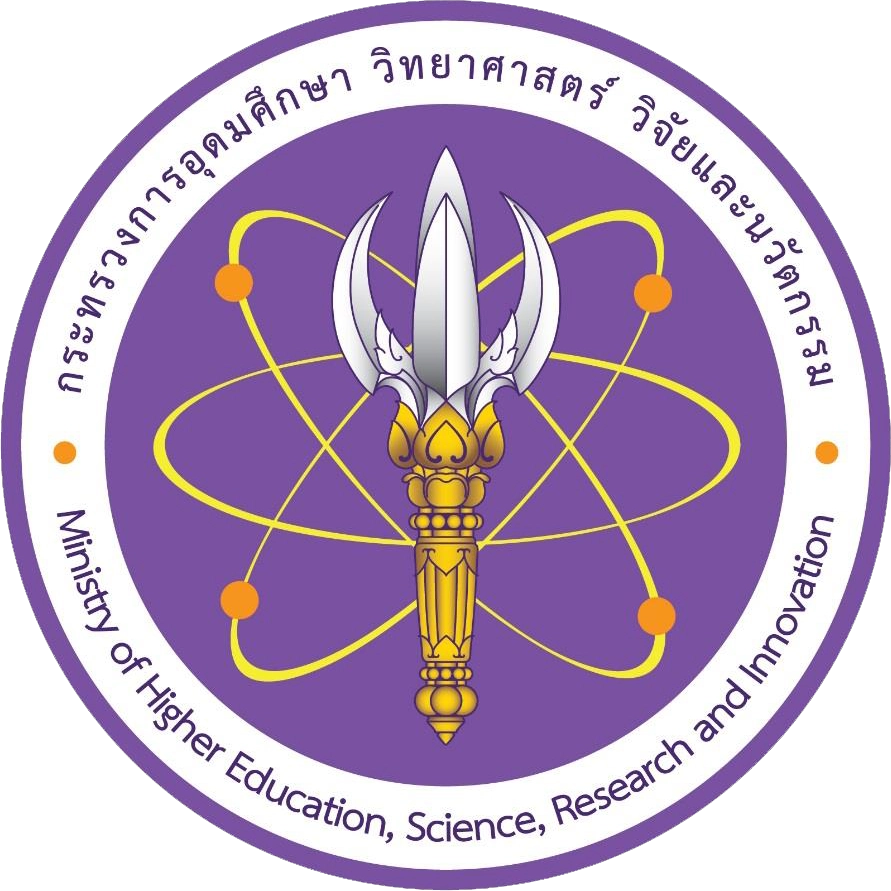ชื่อโครงการ
การพัฒนาเมืองเชียงใหม่นครแห่งการเรียนรู้ เพื่อการพัฒนาเมืองพลวัตที่ยั่งยืนคำสำคัญ
เชียงใหม่นครแห่งการเรียนรู้,เมืองพลวัตที่ยั่งยืนบทคัดย่อ
ชุดโครงการ “การพัฒนาเมืองเชียงใหม่นครแห่งการเรียนรู้ เพื่อการพัฒนาเมืองพลวัตที่ยั่งยืน” มีวัตถุประสงค์ในการดำเนินงาน 3 วัตถุประสงค์ คือ 1) เพื่อพัฒนากลไกความร่วมมือและการมีส่วนร่วมในการพัฒนาเมืองรูปแบบใหม่ สู่การสร้างระบบนิเวศนครเชียงใหม่เมืองแห่งการเรียนรู้อย่างเป็นรูปธรรมตามองค์ประกอบของ UNESCO ภายใต้ประเด็นเศรษฐกิจสร้างสรรค์ และสิ่งแวดล้อมเมือง 2) จัดทำ “ปูมเมืองเชียงใหม่” (local study) และเปิดให้เข้าถึงข้อมูลต่อสาธารณประโยชน์ (Chiangmai City Atlas & Open Data) และ 3) การพัฒนาพื้นที่ต้นแบบและกิจกรรมที่นำไปสู่การขับเคลื่อนนครเชียงใหม่เมืองแห่งการเรียนรู้ ไปสู่การพัฒนาเมืองพลวัตที่ยั่งยืน ภายใต้ประเด็นเศรษฐกิจสร้างสรรค์ และสิ่งแวดล้อมเมือง ซึ่งเป็นการดำเนินงานร่วมกับเทศบาลนครเชียงใหม่ และภาคีเครือข่ายการพัฒนาเมือง โดยการดำเนินการของชุดโครงการมุ่งพัฒนาให้เกิดพื้นที่ต้นแบบและกิจกรรม (Learning Program) ที่นำไปสู่การขับเคลื่อนนครเชียงใหม่เมืองแห่งการเรียนรู้ เพื่อการพัฒนาเมืองพลวัตที่ยั่งยืน ภายใต้ประเด็นเศรษฐกิจสร้างสรรค์ และสิ่งแวดล้อมเมือง โดยเป็นการหนุนเสริมการทำงานของโครงการย่อยทั้ง 2 โครงการ ในการดำเนินงานค้นหาและรวบรวมจัดเก็บองค์ความรู้ท้องถิ่น(Local Study) ที่จะการสร้างกลไกความร่วมมือระหว่างภาคีเครือข่าย เพื่อสร้างพื้นที่การเรียนรู้ระดับเมือง และการออกแบบพื้นที่การเรียนรู้ เพื่อนำไปสู่การขับเคลื่อนเมืองแห่งการเรียนรู้ การดำเนินงานของชุดโครงการพบข้อค้นพบจากการดำเนินงานของโครงการที่จะนำไปสู่การเกิดการยกระดับการเรียนรู้ของประชาชนในพื้นที่เพื่อสร้างเศรษฐกิจท้องถิ่น สร้างคุณภาพชีวิต และการมีส่วนร่วมในการพัฒนาเมืองผ่านพื้นที่การเรียนรู้ด้วยกลไกความร่วมมือระดับเมืองอย่างเป็นรูปธรรมภายใต้ประเด็นเศรษฐกิจสร้างสรรค์ และสิ่งแวดล้อมเมือง ซึ่งสามารถสรุปได้ดังนี้คือ 1) การค้นหาและรวบรวมจัดเก็บองค์ความรู้ท้องถิ่นที่ (Local Study) จาก ฐานข้อมูลระดับเมือง (เศรษฐกิจ และสิ่งแวดล้อม) ที่สามารถเป็นฐานข้อมูลในการพัฒนาเมือง ได้เกิดข้อค้นพบปัญหาเศรษฐกิจของเมือง และเครื่องมือที่ใช้ในการแก้ไขปัญหา (เศรษฐกิจสร้างสรรค์ และเทศกาลเมือง) รวมไปถึงการฟื้นเศรษฐกิจเมือง/เศรษฐกิจฐานราก ภายใต้สถานการณ์โควิด และปัญหาสิ่งแวดล้อมใน 5 ประเด็นใหญ่ของเชียงใหม่ ทั้งเรื่องการขาดแคลนพื้นที่สีเขียว, เกาะความร้อนเมือง, PM 2.5, ความมั่นคงทางอาหาร และคลองแม่ข่า รวมทั้งการแก้ไขปัญหาที่ผ่านมา 2) สร้างกลไกความร่วมมือของภาคีเครือข่ายเพื่อสร้างพื้นที่แห่งการเรียนรู้ระดับเมืองและย่าน จากการทำงานได้เกิดกิจกรรมการเรียนรู้ที่ช่วยเชื่อมโยงเครือข่ายการทำงานเชิงประเด็น ทั้งรัฐ เอกชน ประชาสังคม และชุมชน รวมทั้งเกิดกลไกความร่วมมือต้นแบบ ได้แก่ เกิดการลองเรียนรู้/ปฏิบัติการณ์ร่วมกันของเครือข่ายผ่านกิจกรรมบนพื้นที่แห่งการเรียนรู้ ทั้งประเด็นเศรษฐกิจและสิ่งแวดล้อม (กลไกความร่วมมือภายใต้แนวคิดเชียงใหม่เมืองเทศกาล และ กลไกควาร่วมมือภายใต้การพัฒนาพื้นที่สีเขียวของเมือง ) รวมทั้งยังเกิดคณะกรรมการขับเคลื่อนสิ่งแวดล้อมเมือง และคณะกรรมการขับเคลื่อนเศรษฐกิจในระดับย่าน แต่ภายใต้การสร้างกลไกความร่วมมือนั้นยังพบความไม่พร้อมในการขับเคลื่อนของอปท. และเมืองขาดการบูรณาการความร่วมมือ (integration) เพื่อการพัฒนาเมืองในเชิงประเด็นในแนวราบ 3) การออกแบบพื้นที่และกิจกรรมการเรียนรู้ เพื่อนำไปสู่การพัฒนาเมืองแห่งการเรียนรู้ พบว่า กระบวนการเรียนรู้เพื่อพัฒนาพื้นที่เมืองและย่าน มีความสำคัญในการช่วยเสริมสร้างโครงสร้างชุมชน ฟื้นฟูความรุ่มรวยทางวัฒนธรรม สร้างความรักและความรู้สึกร่วมกันของผู้คนภายในชุมชนและย่าน ซึ่งจากข้อค้นพบข้างต้นก็ยังมีช่องว่างอีกมากมายที่ต้องขยายผลให้สำหรับเมืองเชียงใหม่ในการขับเคลื่อนการเป็นเมืองแห่งการในเรียนรู้
Title
Chiang Mai Learning City for Resilient and Sustainable CityKeywords
Chiangmai Learning City,Resilient and Sustainable CityAbstract
The project “Chiang Mai City Development, the City of Learning for sustainable dynamic urban development” consisted of three operational objectives: 1) to develop mechanisms for cooperation and participation in new urban development that creates an ecosystem of Chiang Mai City, a learning city in a concrete form according to the elements of UNESCO under the theme of creative economy and urban environment 2) to conduct a “local study” and open access to information to the public (Chiangmai City Atlas & Open Data); and 3) to develop model areas and activities leading to Chiang Mai City, the city of learning towards sustainable urban dynamics development under the issue of creative economy and urban environment. It is a joint operation with Chiang Mai Municipality and urban development network partners by the implementation of a series of projects aiming to develop a model area and learning program that leads to driving Chiang Mai City, the city of learning for sustainable urban dynamics development under the issue of creative economy and urban environment. This is to support the work of both sub-projects in the search and collection of local study that will create a mechanism for cooperation between network partners in order to create a learning area at the city level and learning space design to reach the city of learning’s goals. The implementation of the project series reveals findings that they will lead to upgrading the learning of the people in the area to build the local economy, build quality of life and participation in urban development through learning areas under concrete cooperation mechanisms at the city level and the issue of creative economy and urban environment which can be summarized as follows: 1) Searching and collecting local knowledge (Local Study) from urban databases (economic and environment) that can be used as databases for urban development. The findings have been discovered the economic problems of the city and tools used to solve problems (creative economy and city festivals) including urban economic recovery / foundation economy under the covid situation and environmental problems in 5 major issues of Chiang Mai including green space shortages, urban heat islands, PM 2.5, food security and Mae Kha canal including solving problems in the past. 2) Creating a mechanism for cooperation of network partners to establish learning spaces at the city and district level. As a result of the work, learning activities have emerged that help connect the working networks on issues including the state, the private sector, civil society, and the community. Network through activities on learning areas both economic and environmental issues (Mechanism of cooperation under the concept of Chiang Mai City Festival and cooperation mechanism under the development of green areas of the city), including a committee to drive the urban environment and the Economic Driving Committee at the district level. However, under the creation of a cooperation mechanism, it was found that the local authorities were not ready to drive and the city lacks integration of cooperation (integration) for urban development in a horizontal issue 3) Designing space and learning activities to lead to the development of a learning city. It was found that the learning process for the development of urban areas and neighborhoods. It is important to help strengthen the community structure, restore cultural richness, create love and a sense of togetherness among people within communities and neighborhoods. From the above findings, there are still many gaps that need to be expanded for Chiang Mai City to drive becoming a learning city.


